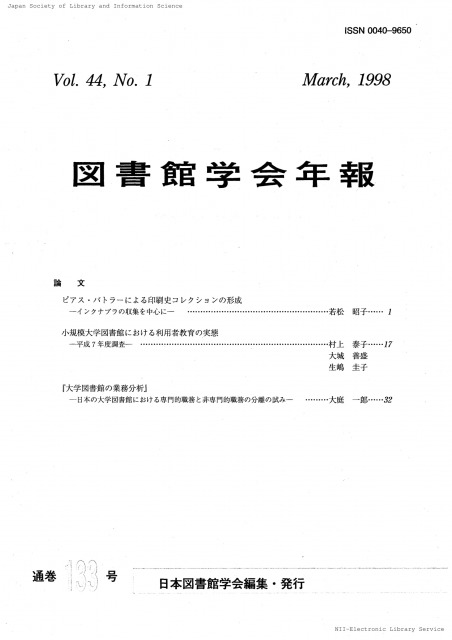Volume 22, Issue 3
Displaying 1-10 of 10 articles from this issue
- |<
- <
- 1
- >
- >|
-
1976Volume 22Issue 3 Pages 97-105
Published: 1976
Released on J-STAGE: October 07, 2022
Download PDF (1197K) -
1976Volume 22Issue 3 Pages 107-119
Published: 1976
Released on J-STAGE: October 07, 2022
Download PDF (1221K) -
1976Volume 22Issue 3 Pages 120-128
Published: 1976
Released on J-STAGE: October 07, 2022
Download PDF (915K)
-
1976Volume 22Issue 3 Pages 129-136
Published: 1976
Released on J-STAGE: October 07, 2022
Download PDF (1001K)
-
1976Volume 22Issue 3 Pages 137-138
Published: 1976
Released on J-STAGE: October 07, 2022
Download PDF (316K) -
1976Volume 22Issue 3 Pages 139-140
Published: 1976
Released on J-STAGE: October 07, 2022
Download PDF (277K) -
1976Volume 22Issue 3 Pages 141-142
Published: 1976
Released on J-STAGE: October 07, 2022
Download PDF (273K)
-
1976Volume 22Issue 3 Pages 143-144
Published: 1976
Released on J-STAGE: October 07, 2022
Download PDF (296K)
-
1976Volume 22Issue 3 Pages 105-106
Published: 1976
Released on J-STAGE: October 07, 2022
Download PDF (283K)
-
1976Volume 22Issue 3 Pages 136
Published: 1976
Released on J-STAGE: October 07, 2022
Download PDF (121K)
- |<
- <
- 1
- >
- >|
